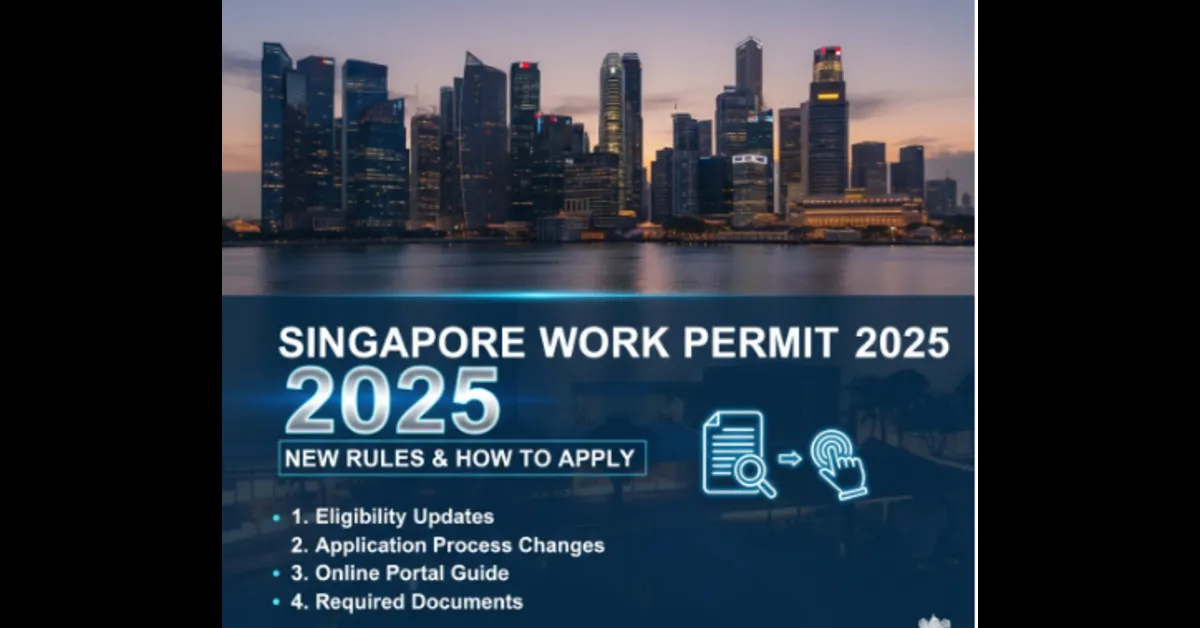Argentina Work VISA 2025 – Application Process

Argentina has become a sought-after destination for international workers, particularly in fields like education, healthcare, engineering, and IT. According to the International Labour Organization (ILO), these sectors are experiencing high demand for skilled professionals.
This article provides comprehensive information for international job seekers who are considering relocating to Argentina, from visa types to living costs and job opportunities.
Check Also: Netherlands Work VISA – Check Here
Why Choose Argentina for Work?
Argentina offers a unique blend of professional opportunities and a lower cost of living compared to countries like the United States. For example, according to Numbeo.com, the cost of living in Argentina can be up to 60% less than in the U.S. This allows workers to not only enjoy a relatively affordable lifestyle but also save a significant portion of their income, especially if they work in high-demand sectors like healthcare, education, IT, or engineering.
However, to legally work in Argentina, all international workers must apply for a work visa. In this article, we’ll break down the visa options available, the application process, the documents needed, and key insights into living and working in Argentina.
Types of Argentina Work VISA:
Argentina offers several visa options for international workers. Below are the primary visa types for workers who wish to live and work in Argentina.
1. Intra-Company Transfer Visa (23 E Article)
If you are currently employed by a multinational company with a branch or office in Argentina, the Intra-Company Transfer Visa is ideal. This visa allows employees to be transferred to the Argentine branch of the company without needing to sign a new labor contract. However, it’s important to note that employees on this visa must be placed on the local payroll in Argentina.
- Eligibility: Must work for a multinational company with operations in Argentina.
- Duration: Typically valid for up to one year, renewable.
- Key Requirement: Proof of employment at the company and placement on the local payroll.
2. Labor Contract Visa (23 A Article)
The Labor Contract Visa is the most common type of work permit for skilled workers, especially for those who have signed a contract with an Argentine employer. This visa is typically issued to workers whose contract is longer than three months, and it allows them to stay in Argentina for up to one year. If needed, the visa can be extended.
- Eligibility: Must have a signed labor contract with an Argentine employer.
- Duration: One year, extendable.
- Key Requirement: Proof of employment, a valid contract, and other supporting documents.
3. MERCOSUR Temporary Residence Visa (23 L Article)
The MERCOSUR agreement between Argentina, Brazil, Paraguay, Uruguay, and other member states provides a special provision for citizens of these countries. Citizens of MERCOSUR countries can apply for a temporary residence permit to work in Argentina without needing a standard work visa.
- Eligibility: Citizens of MERCOSUR member countries (e.g., Uruguay, Brazil, Paraguay).
- Duration: Temporary residence, typically renewable.
- Key Requirement: Proof of citizenship from a MERCOSUR country.
Documents Required:
When applying for a work visa, you will need to submit various documents to Argentina’s consular office. Here’s a list of the typical documents required:
- Valid Passport
- Recent Photographs (4×4 cm, two copies)
- Completed Visa Application Form
- Proof of Residence (such as utility bills or a lease agreement)
- Character Certificate (issued by your local police department, valid for the last three years)
- Receipt of Application Fee (US$250)
- Embassy Interview (required as part of the application process)
Important Note: The exact requirements may vary based on the specific type of visa you are applying for and your country of origin. It’s advisable to contact the Argentine consulate in your country for the most up-to-date requirements.
Cost of Living in Argentina: Is it Really Cheaper Than the USA?
As mentioned earlier, the cost of living in Argentina is generally lower than in the United States. This can vary significantly depending on the city you choose to live in. Buenos Aires, for example, is typically more expensive than smaller towns, though still much cheaper than major U.S. cities like New York or San Francisco.
Here are some common expenses compared between Argentina and the U.S.:
- Rent: Renting an apartment in Buenos Aires can cost 60-70% less than renting a similar apartment in cities like New York.
- Food and Dining: A meal at a local restaurant can be up to 50% cheaper than in the U.S.
- Utilities: Monthly utilities for an average apartment may cost around 40-50% less in Argentina compared to the U.S.
However, while the cost of living is generally lower, salaries in Argentina also tend to be lower. For international workers, this means that while living expenses will be more affordable, the income should still be considered when evaluating whether it is a financially viable move.
Challenges and Practical Tips:
Although Argentina offers many opportunities, international workers may face certain challenges, such as:
- Language Barrier: Spanish is the official language, and while many people speak English in urban areas, it is highly beneficial to learn Spanish to fully integrate into the workforce and society.
- Cultural Adjustment: Argentina has a unique culture with its own business etiquette and social norms. Understanding local customs and behaviors will help you navigate professional relationships more effectively.
- Job Market Competitiveness: While Argentina offers a range of opportunities in certain sectors, the job market can be competitive. It’s essential to leverage local job boards, recruitment agencies, and professional networks to find suitable opportunities.
- Legal and Bureaucratic Processes: The immigration process, including applying for a visa, can be bureaucratic and time-consuming. Ensure that you follow all steps carefully, provide complete documentation, and be prepared for potential delays.
Conclusion:
Argentina remains an attractive destination for international workers, particularly in sectors like healthcare, education, IT, and engineering. With its lower cost of living and growing job market, it offers a unique opportunity for those looking to relocate abroad. However, to ensure a smooth transition, it is essential to understand the various work visa options, the documentation required, and the potential challenges of living in a new country.
By thoroughly researching your visa options and preparing for the cultural and professional adjustments, you can make the most of your experience in Argentina and enjoy a fulfilling career abroad.
For more detailed information and the latest updates on visa requirements, visit the Ministry of Foreign Affairs, Argentina.
Frequently Asked Questions:
What jobs are most in demand in Argentina?
Not surprisingly, the most common jobs in Argentina are in education and teaching, particularly ESL- and TEFL positions. Native English speakers are always in high demand, and those with solid credentials will find higher-paying teaching jobs in Argentina. Hospitality & Tourism.
How to apply for work in Argentina?
Most foreigners will first need a permiso de ingreso (entry permit) to enable them to enter the country. The employer will generally handle this application. After this, your employee will need a residency permit and a work visa (usually 23 A or 23 E) from their local Argentinian embassy or consulate.
Can a foreigner work in Argentina?
This visa is granted to foreigners who have the right to live and work in Argentina for an indefinite period. The visa is issued in limited cases, like for: workers with temporary residence visas and who are already working on assignments in the country.



